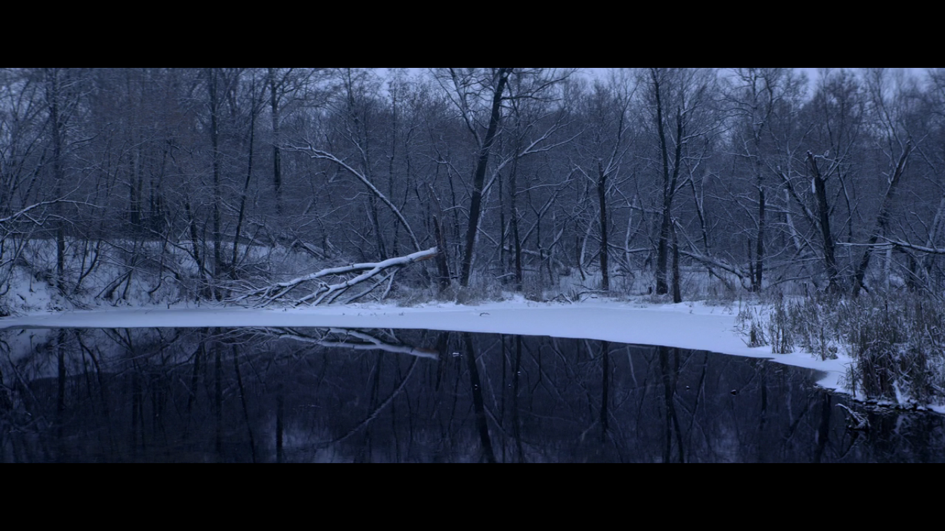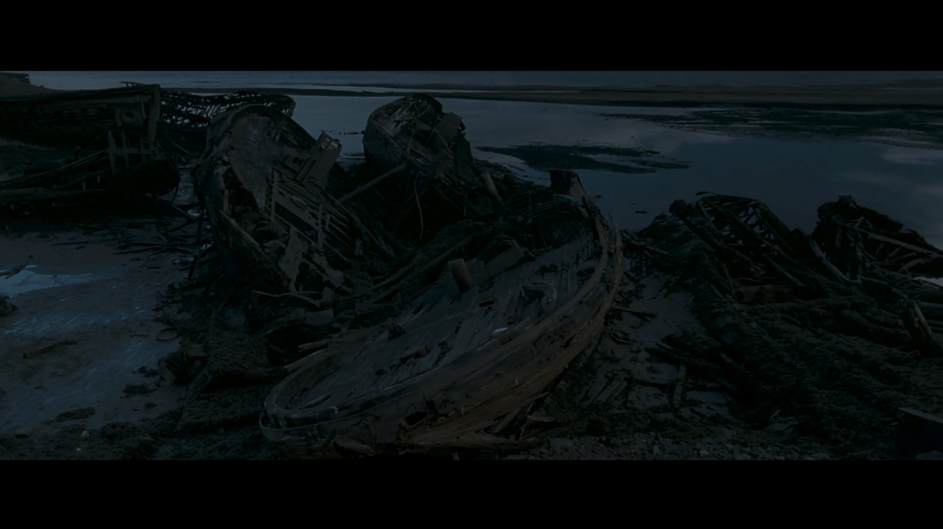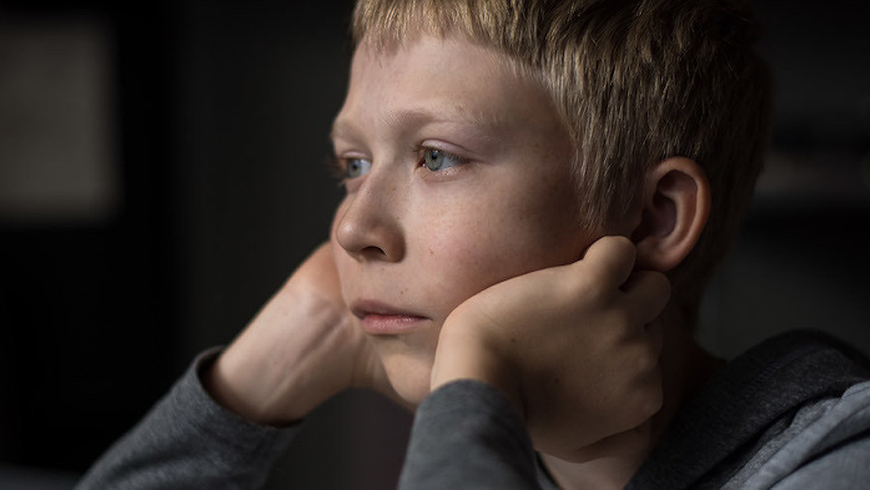Loveless
Ruken Doğu Erdede
Prominent Russian director Andrey Zvyagintsev turns to the movie theaters with Loveless (2017) ,the story of a spiritual crime- procedural about a divorcing couple who have to work together when their 12-year-old son goes missing. Although it got jury prize at Cannes Film Festival, Loveless is overshadowed by director's previous political drama Leviathan (2014). A discussion on comparing the success of those two films misleads us to seeing a certain cause-effect relation between them. While Leviathan demonstrates crooked politics in Russia, Loveless shows how personal relationships look like in such a country. Starting from this point, I want to look at how the connection between two films is built on style and content.
Decay From Top to Bottom : A Portray of a Country through a Family Drama
The first connection between the two films is made by using parallel opening sequences. Leviathan starts with the images of a wavy sea and decayed hulks in grey tones with a panaromic view. Similiarly, the first sequence of Loveless shows a forest in winter where there are no leaves on the trees. The tone of the images is grey, too. Thus, Zvyagintsev portrays the same planet in both films. A grey, cold, rotten and even a dead planet.
Except from content and tones, the duration of these two opening sequences stand out. The reason can be found in Andre Bazin’s readings on realist cinema. According to Bazin which is quoted by Edward Hudlin ;
(…) long seqeunces is a forcing of spectators to assume a more active role in interpreting the representation of reality before them. No longer are spectators guided by the close up, the edit, the montage sequence ; instead are forced to discern (…) ( Hudlin, 1980)
The long opening sequence of the Loveless forces us to discern the universe we are going to get in. It also reminds us of Leviathan’s opening. Therefore, the viewing experience of Loveless changes according to whether the viewer has seen Leviathan or not. If the viewer has seen Leviathan, he/she will know what the kind of universe to expect.
Both films portray Russia as a cold, grey, rotten and even a dead country. Therefore, it’s not suprising to see the story of a failed marriage in its awful final stages in Loveless. Boris and Zhenya share the family apartment and try to sell it. They quarrel endlessly and want to divorce. But there is a problem of their son, Alyosha, whose custody neither of them wants. After a fight between Boris and Zhenya, Alyosha goes missing and the divorcing couple have to work together. While the story evolves into a procedural crime thriller, the connection between the film with Leviathan’s political crime story becomes more explicit.

After Zhenya (the mother) realizes that her son is missing, she calls the police. Police officers come to the apartment and frankly say that they can not help them. There is not enough equipment and officers for search teams. (00.55.02) This example of disfunctioning bureaucracy is very similar to Leviathan’s main plot. A crooked mayor, Vadim, tries to purchase a land that belongs to Kolya, a car mechanic. And the mayor’s men kill Kolya’s wife and accuse Kolya of the crime. Thus, the mayor takes the land. The story reveals a very disturbing political atmosphere of modern Russia. In a scene, Putin’s picture is hung on a wall where Vadim and his head become a whole. The crooked mayor and what he does throughout film become a symbol of degenerate politics and bureaucracy in Russia. We see small remains of it when police refuse to search for Alyosha.

After police claim that they can not help them, Boris and Zhenya start to search for their son with a volunteer group. The head of the group suggests them to look at the home of Zhenya’s mother, who is the only relative. The couple drive from Moscow to the country side. The film creates such a sense that we come closer to where Leviathan’s story takes place. But the real connection appears when we see the mother’s persona. In a conversation between the mother and Zhenya, the reason for the marriage of the couple is revealed. Zhenya gets pregnant and her mother does not accept this pregnancy and she has to marry Boris. The marriage is not based on mutual love; it is based on the necessity to escape from the despotic mother, the past, and the tradition. It’s clear that this escape is impossible in two ways. One is that the journey always makes one face the past like the couple having to go to visit the mother. Other reason is that the past, the tradition are not something escapable. The remains of the past are at the heart of everything; from founding of Modern Russia to founding of personal relationships.

A Russian historian writes on this legacy of Soviet regime in modern Russia and he claims that the regime that was formed in Russia in the mid-1990’s is hard to call anything other than a ‘criminal oligarchy and monopolistic bureaucracy’ ( Grinev, 2016). We should add that except from criminal oligarchy and monopolistic bureaucracy, there is a certain degeneration of religion, too. This can be found in the scene when Zhenya and mother talk. Zhenya’s mother yells, swears and mentions the name of Jesus Christ at the same time. (1.10.02). When Todd Berliner writes on dialogues of Cassavetes, he notes, (…) when a movie violates movie-dialogue convention, the violation means something. ( Berliner , 1999 ). In this specific scene, there is no formalistic violation but putting swears and Jesus Christ’s name in same dialogue is a violation of a religious content. This is the how film examplifies degeneration of religion in modern Russia. This rottenness of religion again connects Loveless to Leviathan. In Leviathan the mayor and religious figure do this violation together to build a church. A church on the land of people who they murdered.
So in such darkness and degeneration there can only be portrayal of those kind of families. The mother doesn’t love her daughter, the daughter and the husband don’t love each other, and they don’t love their unwelcome child. In a place that politics, the jurisdiction, religion are rotten, naturally human relations are rotten, too.
The crooked mayor built the church in the land of Kolya after killing his wife and putting him in prison. The couple did not find Alyosha, divorced and now are in unhappy relationships with different people. The pessimistic end of two films come off with the parallelism used in opening and ending sequences. As I mentioned before, there is a parallelism in the opening sequences of both films. There is also parallelism in the end sequences. Both in Leviathan and Loveless Zvyganitsev shows images from nature again. So he closes the universe in the same way he opens it. Again with images of wavy sea, rotten hulks and a dead forest under heavy snow. After the stories of some people end, there remains the land. The land is grey, cold but most importantly loveless.
Works Cited
Hudlin, E. ( 1980) Understanding the Realist Tendency in the Cinema
Grinev, A. ( 2016) Transformation of the Russian ‘Leviathan’ over the Centuries
Berliner, T. ( 1999) Hollywood Movie Dialogue and the ‘Real Realism’ of John Cassevetes
previous
article
next
article Twitter Google Plus Facebook
